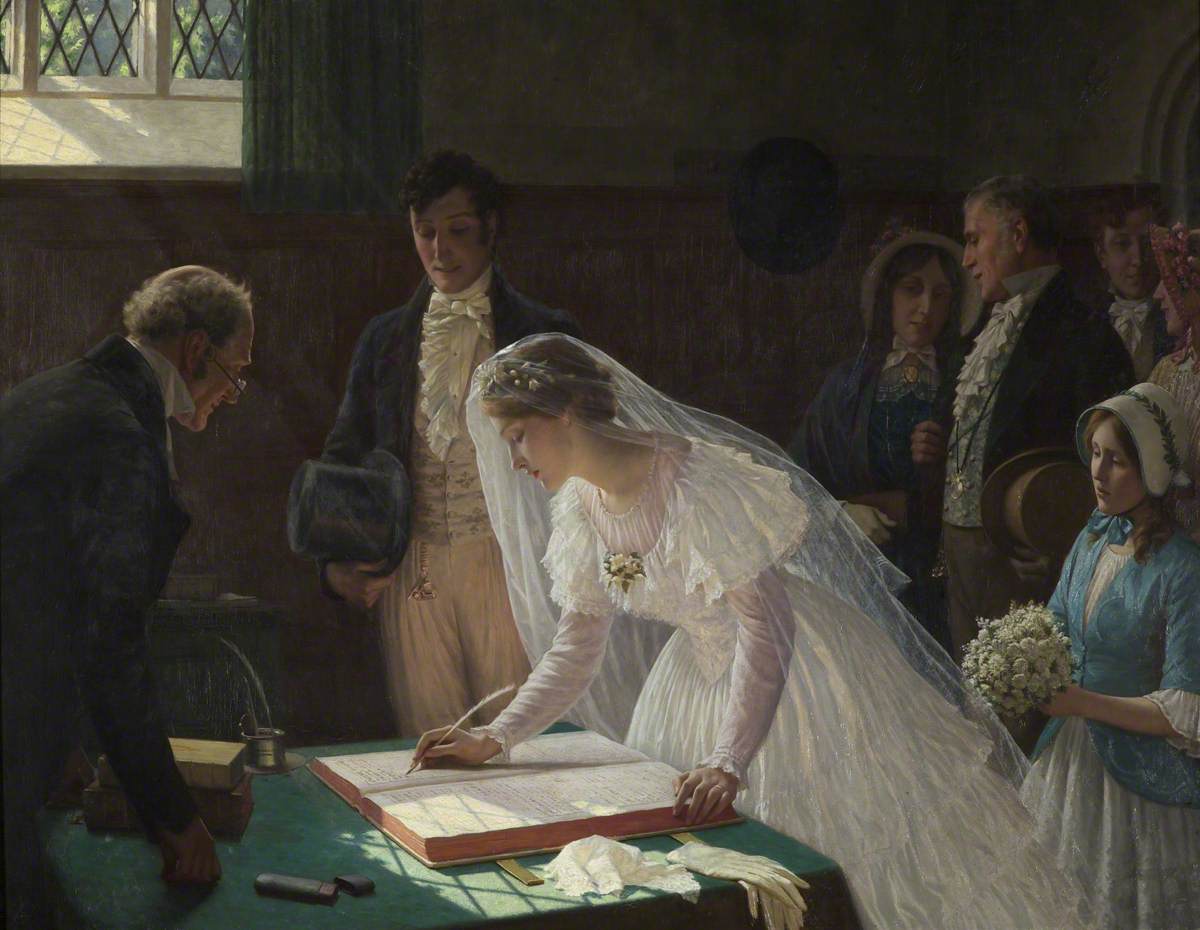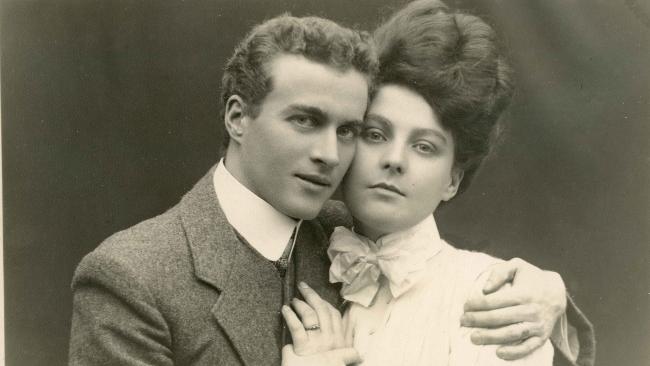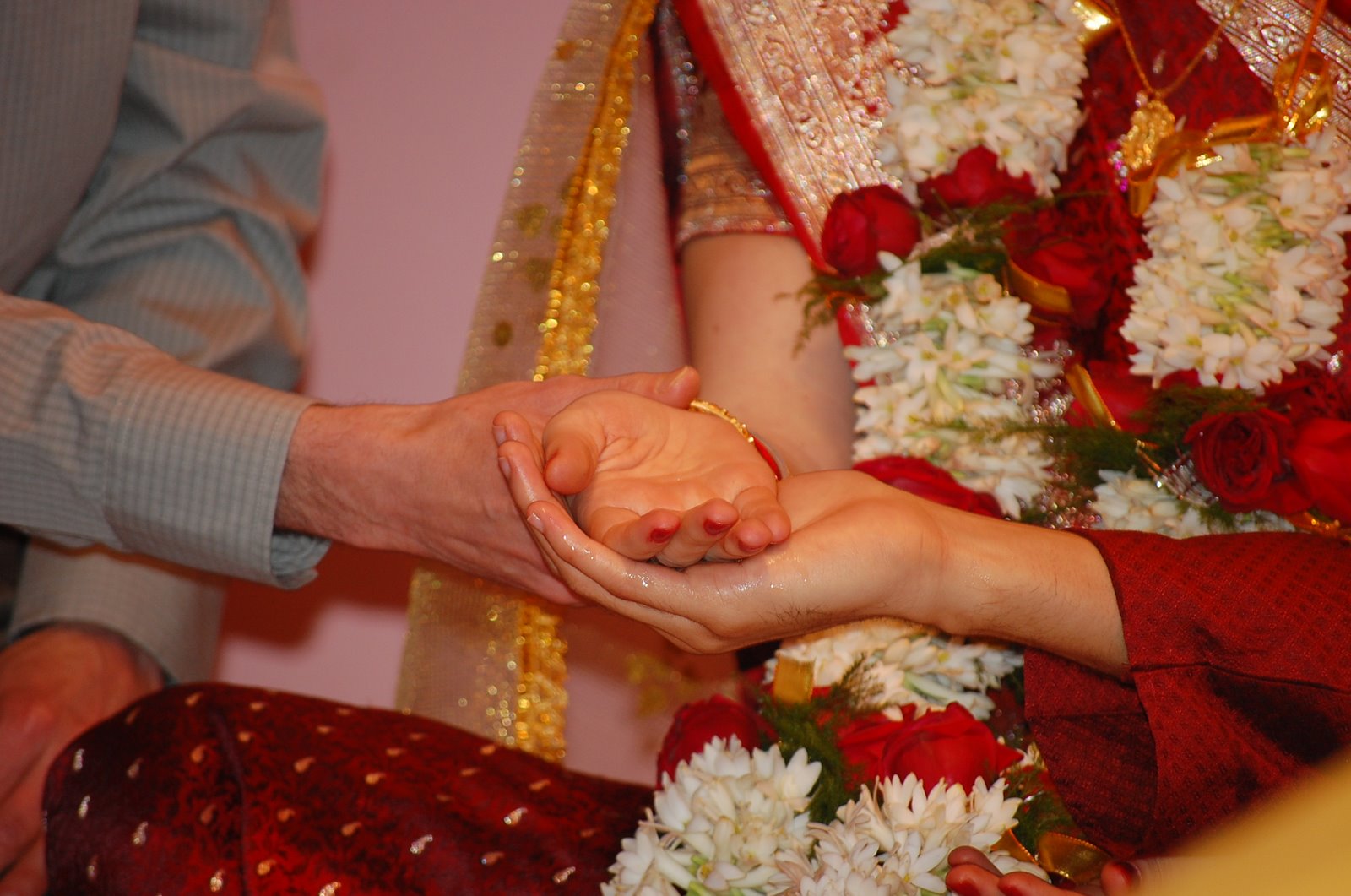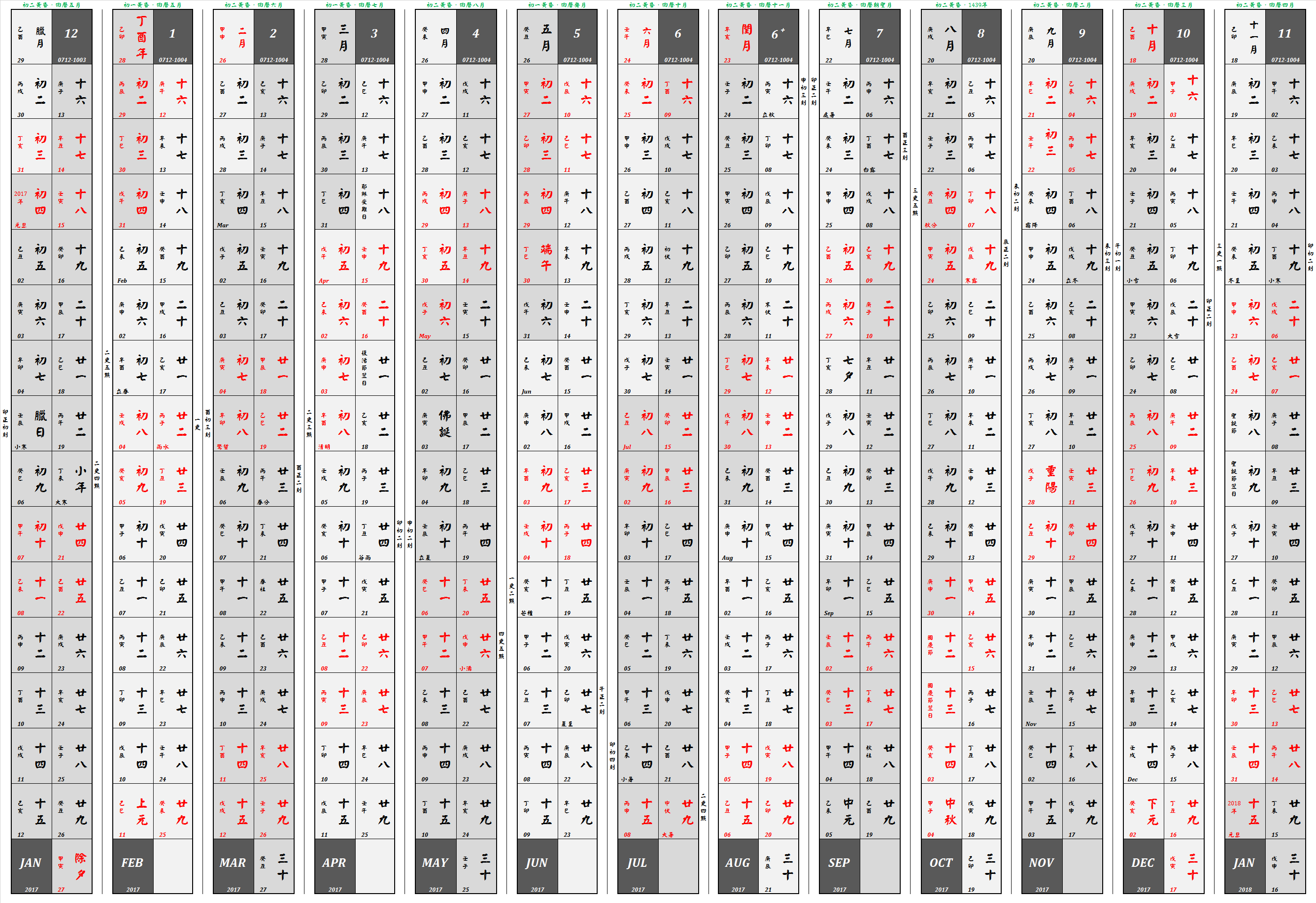|
Auspicious Wedding Dates
Auspicious wedding dates refer to auspicious, or lucky, times to get married, and is a common belief among many cultures. Although there are a few periods, such as the month of May, which they agree on, a number of cultures, including Hindu, Chinese, Catholic, Scottish, Irish, Old English, Ancient Roman and Moroccan culture, favor and avoid particular months and dates for weddings. A number of cultures, including the Chinese and Hindu cultures, favor particular auspicious dates for weddings. Auspicious days may also be chosen for the dates of betrothals. Dates for a particular couple's wedding may often be determined with the help of a traditional fortune-teller. Hindu culture For Hindu wedding, Akshaya Tritiya is viewed as one of the foremost auspicious wedding dates, of which there are many. In Hindu Vedic astrology, a couple should first determine each other's zodiac signs. In addition to aiding them in the search for an auspicious wedding date, it will help them to furth ... [...More Info...] [...Related Items...] OR: [Wikipedia] [Google] [Baidu] |
Chinese Culture
Chinese culture () is one of the Cradle of civilization#Ancient China, world's earliest cultures, said to originate five thousand years ago. The culture prevails across a large geographical region in East Asia called the Sinosphere as a whole and is extremely diverse, with customs and traditions varying greatly between regions. The terms 'China' and the geographical landmass of 'China' have shifted across the centuries, before the name 'China' became commonplace. Chinese civilization is historically considered a dominant culture of East Asia. Chinese culture exerted profound influence on the philosophy, customs, politics, and traditions of Asia. Chinese characters, Chinese ceramics, ceramics, Chinese architecture, architecture, Chinese music, music, History of Chinese dance, dance, Chinese literature, literature, Chinese martial arts, martial arts, Chinese cuisine, cuisine, Chinese art, arts, Chinese philosophy, philosophy, etiquette, Religion in China, religion, Legalism (Chin ... [...More Info...] [...Related Items...] OR: [Wikipedia] [Google] [Baidu] |
Hindu Culture
Hinduism () is an umbrella term for a range of Indian religious and spiritual traditions ( ''sampradaya''s) that are unified by adherence to the concept of ''dharma'', a cosmic order maintained by its followers through rituals and righteous living, as expounded in the Vedas. The word ''Hindu'' is an exonym, and while Hinduism has been called the oldest religion in the world, it has also been described by the modern term '' Sanātana Dharma'' () emphasizing its eternal nature. ''Vaidika Dharma'' () and '' Arya dharma'' are historical endonyms for Hinduism. Hinduism entails diverse systems of thought, marked by a range of shared concepts that discuss theology, mythology, among other topics in textual sources. Hindu texts have been classified into Śruti () and Smṛti (). The major Hindu scriptures are the Vedas, the Upanishads, the Puranas, the ''Mahabharata'' (including the ''Bhagavad Gita''), the ''Ramayana'', and the Agamas. Prominent themes in Hindu beliefs include t ... [...More Info...] [...Related Items...] OR: [Wikipedia] [Google] [Baidu] |
Wedding
A wedding is a ceremony in which two people are united in marriage. Wedding traditions and customs vary greatly between cultures, ethnicity, ethnicities, Race (human categorization), races, religions, Religious denomination, denominations, Country, countries, social classes, and sexual orientations. Most wedding ceremonies involve an exchange of marriage vows by a couple; a presentation of a gift (e.g., an offering, rings, a symbolic item, flowers, money, or a dress); and a public proclamation of marriage by an authority figure or Celebrant (Australia), celebrant. Special wedding garments are often worn, and the ceremony is sometimes followed by a wedding reception. Music, poetry, prayers, or readings from religious texts or literature are also commonly incorporated into the ceremony, as well as Wedding superstitions, superstitious customs. Common elements across cultures Some cultures have adopted the traditional Western custom of the white wedding, in which a bride wear ... [...More Info...] [...Related Items...] OR: [Wikipedia] [Google] [Baidu] |
Betrothal
An engagement or betrothal is the period of time between the declaration of acceptance of a marriage proposal and the marriage itself (which is typically but not always commenced with a wedding). During this period, a couple is said to be ''fiancés'' (from wikt:fiancé#French, the French), "betrothed", "intended", "affianced", "engaged to be married", or simply "engaged". Future brides and grooms may be called ''fiancée'' (feminine) or ''fiancé'' (masculine), "the betrothed", "wife-to-be" or "husband-to-be", respectively. The duration of the courtship varies vastly, and is largely dependent on cultural norms or upon the agreement of the parties involved. Long engagements were once common in formal arranged marriages, and it was not uncommon for parents betrothing children to arrange marriages many years before the engaged couple were old enough. This is still done in some countries. Many traditional Christian denominations have optional rites for Christian betrothal (also k ... [...More Info...] [...Related Items...] OR: [Wikipedia] [Google] [Baidu] |
Fortune-teller
Fortune telling is the spiritual practice of predicting information about a person's life. Melton, J. Gordon. (2008). ''The Encyclopedia of Religious Phenomena''. Visible Ink Press. pp. 115–116. The scope of fortune telling is in principle identical with the practice of divination. The difference is that divination is the term used for predictions considered part of a religious ritual, invoking deities or spirits, while the term fortune telling implies a less serious or formal setting, even one of popular culture, where belief in occult workings behind the prediction is less prominent than the concept of suggestion, spiritual or practical advisory or affirmation. Historically, Pliny the Elder describes use of the crystal ball in the 1st century CE by soothsayers (''"crystallum orbis"'', later written in Medieval Latin by scribes as ''orbuculum''). Contemporary Western images of fortune telling grow out of folkloristic reception of Renaissance magic, specifically assoc ... [...More Info...] [...Related Items...] OR: [Wikipedia] [Google] [Baidu] |
Hindu Wedding
A Hindu wedding, also known as (, ) in Hindi, () in Marathi, () in Bhojpuri, () in Bengali, () or () in Odia, () in Tamil, () in Telugu, () in Kannada, and ''kalyanam'' (, ; ) in Malayalam and other languages, is the traditional marriage ceremony for Hindus. The weddings are very colourful, and celebrations may extend for several days and usually a large number of people attend the wedding functions. The bride's and groom's homes—entrance, doors, walls, floor, roof—are sometimes decorated with colors, flowers, lights and other decorations.Yee, A. (2008 May 17Sari nights and henna parties ''The Financial Times''. The word ''vivāha'' originated as a sacred union of two people as per Vedic traditions, i.e. what many call marriage, but based on cosmic laws and advanced ancient practices. Under Vedic Hindu traditions, marriage is viewed as one of the saṁskāras performed during the life of a human being, which are lifelong commitments of one wife and one hu ... [...More Info...] [...Related Items...] OR: [Wikipedia] [Google] [Baidu] |
Akshaya Tritiya
Akshaya Tritiya, also known as Akti or Akha Teej, is an annual Jain and Hindu spring festival. It falls on the third ''tithi'' (lunar day) of the bright half (''Shukla Paksha'') of the Hindu month of Vaisakha. This day is auspicious for those who buy rice, deposit money in a bank account, buy any kind of new things or vessels - visiting temples, donating foods or special offers for poor people, or helping poor children for their education fees, all are good signs for Akshaya Tritiya. Overview Akshaya Tritiya is regionally observed as an auspicious day by Hindus and Jains in India; Gupte 1994, p. 5 it signifies the "third day of unending prosperity". Akshaya Tritiya is considered auspicious by Hindus and Jains in many regions of India and Nepal for new ventures, marriages, charity, and in investments such as gold or other property. It is also a day of remembrance for the loved ones who have died. Rituals are often performed to honor departed souls on this day. The day is regio ... [...More Info...] [...Related Items...] OR: [Wikipedia] [Google] [Baidu] |
Numerological
Numerology (known before the 20th century as arithmancy) is the belief in an occult, divine or mystical relationship between a number and one or more coinciding events. It is also the study of the numerical value, via an alphanumeric system, of the letters in words and names. When numerology is applied to a person's name, it is a form of onomancy. It is often associated with astrology and other divinatory arts. Number symbolism is an ancient and pervasive aspect of human thought, deeply intertwined with religion, philosophy, mysticism, and mathematics. Different cultures and traditions have assigned specific meanings to numbers, often linking them to divine principles, cosmic forces, or natural patterns. The term numerologist can be used for those who place faith in numerical patterns and draw inferences from them, even if those people do not practice traditional numerology. For example, in his 1997 book ''Numerology: Or What Pythagoras Wrought'' (), mathematician Underwood ... [...More Info...] [...Related Items...] OR: [Wikipedia] [Google] [Baidu] |
Chinese Calendar
The traditional Chinese calendar, dating back to the Han dynasty, is a lunisolar calendar that blends solar, lunar, and other cycles for social and agricultural purposes. While modern China primarily uses the Gregorian calendar for official purposes, the traditional calendar remains culturally significant. It determines the timing of Chinese New Year with traditions like the twelve animals of the Chinese zodiac, Chinese Zodiac still widely observed. The traditional Chinese calendar uses the Sexagenary cycle, sexagenary cycle, a repeating system of Heavenly Stems and Earthly Branches, to mark years, months, and days. This system, along with astronomical observations and mathematical calculations, was developed to align solar and lunar cycles, though some approximations are necessary due to the natural differences between these cycles. Over centuries, the calendar was refined through advancements in astronomy and horology, with dynasties introducing variations to improve accu ... [...More Info...] [...Related Items...] OR: [Wikipedia] [Google] [Baidu] |
Gregorian Calendar
The Gregorian calendar is the calendar used in most parts of the world. It went into effect in October 1582 following the papal bull issued by Pope Gregory XIII, which introduced it as a modification of, and replacement for, the Julian calendar. The principal change was to space leap years slightly differently to make the average calendar year 365.2425 days long rather than the Julian calendar's 365.25 days, thus more closely approximating the 365.2422-day tropical year, "tropical" or "solar" year that is determined by the Earth's revolution around the Sun. The rule for leap years is that every year divisible by four is a leap year, except for years that are divisible by 100, except in turn for years also divisible by 400. For example 1800 and 1900 were not leap years, but 2000 was. There were two reasons to establish the Gregorian calendar. First, the Julian calendar was based on the estimate that the average solar year is exactly 365.25 days long, an overestimate of a li ... [...More Info...] [...Related Items...] OR: [Wikipedia] [Google] [Baidu] |
Fortune-telling
Fortune telling is the spiritual practice of predicting information about a person's life. Melton, J. Gordon. (2008). ''The Encyclopedia of Religious Phenomena''. Visible Ink Press. pp. 115–116. The scope of fortune telling is in principle identical with the practice of divination. The difference is that divination is the term used for predictions considered part of a religious ritual, invoking deities or spirits, while the term fortune telling implies a less serious or formal setting, even one of popular culture, where belief in occult workings behind the prediction is less prominent than the concept of suggestion, spiritual or practical advisory or affirmation. Historically, Pliny the Elder describes use of the crystal ball in the 1st century CE by soothsayers (''"crystallum orbis"'', later written in Medieval Latin by scribes as ''orbuculum''). Contemporary Western images of fortune telling grow out of folkloristic reception of Renaissance magic, specifically ass ... [...More Info...] [...Related Items...] OR: [Wikipedia] [Google] [Baidu] |








